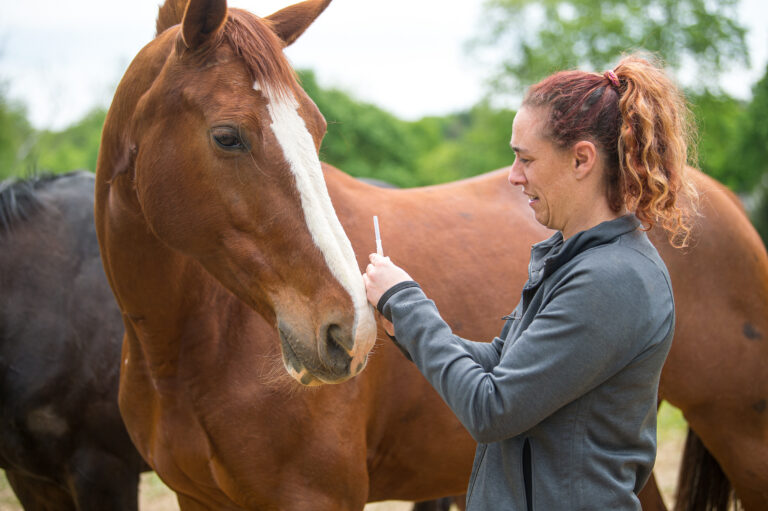
In both horses and humans, the autonomic nervous system is largely responsible for things we take for granted—regulating our cardiovascular, gastrointestinal and other systems without our conscious involvement. There are sympathetic and parasympathetic aspects of the autonomic system. The former is connected with a fight-or-flight response, while the latter is related to a “rest-and-digest” mode, explains Olivia Lorello, VMD, CVA, from the Swiss Institute of Equine Medicine at the University of Bern.
The two sides are meant to balance out. “When one is high, the other is low,” says Dr. Lorello. A chronic imbalance is a strong indicator of potential heart trouble. And that makes it an interesting area of study for the eventing world, which has been haunted in recent years by a number of heart-related equine fatalities.
Dr. Lorello and her colleagues wanted to begin defining normal values of autonomic tone markers and how they change over a competition season—something that to date has been incompletely described in event horses.
The team gathered two groups of warmbloods, all approximately the same age. The control group consisted of eight noncompeting horses and the test group consisted of 17 eventers competing at Preliminary through CCI*** levels. Not all horses completed the study for either rider-related or horse health-related reasons.
The researchers defined three stages of the competition year: preseason, midseason and peak or end of season. At each of these stages, they measured common markers of autonomic tone, including heart-rate variability, blood pressure, pre- and post-exercise cortisol and muscle-enzyme activities. They also incorporated standardized exercise tests (SETs), where the horses were galloped in three sets for 1,490 meters at increasing speeds with five-minute trot breaks between sets.
“Blood samples were drawn after each gallop,” says Dr. Lorello. “The horses had continuous electrocardiogram monitoring throughout the riding test to measure heart rate and rhythm. This device also had a GPS tracker to monitor speed.”
Researchers found that the eventers in the test group had lower heart-rate variability than the controls, suggesting that the event horses were maintaining autonomic tone balance. Similarly, post-exercise cortisol was lower in the test group than the control group at mid-season and peak season. This indicates that the eventers had a lower stress response to the SETs than the control horses. Not surprisingly, eventers also demonstrated higher fitness levels during the SETs.
Dr. Lorello states that these results don’t yet lead to a specific conclusion regarding event horse heart health. But, she notes, “This study serves to bring us one step closer to understanding the potential effects of training [and] exercise on equine athletes.” And the more we know, the more we can work toward creating an environment of optimal well-being for our horses.
This article was originally published in the September 2017 issue of Practical Horseman.











